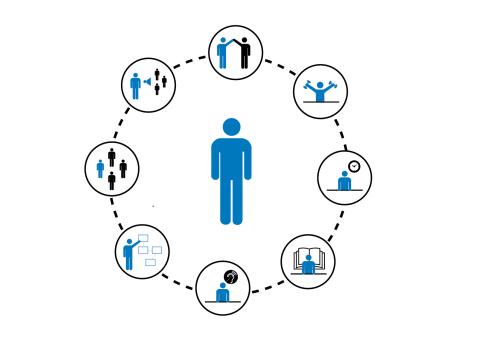
Traditionally, soft skills were viewed as a secondary bonus to an applicant’s technical skill set; however, in today’s extremely competitive job market, employers are looking for proof of a mix of both hard and soft skills. In fact, recruiters will view a lack of demonstrated leadership or extracurricular activities on your resume as a potential red flag.

You have probably heard the word “mentor” many times and how important a mentor can be for your career, but how can you identify suitable mentors for you? This is a question that many trainees ask themselves. Identifying a good mentor is not an easy task and it takes time and dedication.
Pondering a career in industry? Then you need to be aware that the industry job offer may contain elements not part of offers in academia, government or non-profits; industry jobs often include a profit sharing plan.
Industry profit sharing takes two basic forms; dividends, a cash payment made to employees and share-holders based upon the performance of the company, usually on an annual basis, and equity, the actual ownership of shares of the company. Equity in a company is granted by one of the following methods:
Post written by Lori M. Conlan, Director of the Postdoc Office and the Career Services Center at the OITE This week I had lunch with the first mentor I had outside of the lab environment. In 2006, I had just left my postdoc to join a non-profit in Manhattan—the New York Academy of Sciences. I knew I could do the job running a career development program for graduate students and postdocs, but I was clueless about how life worked in an office. I started on a Tuesday, and by Friday I was sent off on my first business trip to Miami.
Post written by Sharon Milgram, Director of The Office of Intramural Training & Education. Science careers, at or away from the bench, require us to be life-long learners. To be successful, we are always learning – and teaching – new skills. While many of us enjoy this, it also comes with frustrations and challenges. In considering how we learn, I was struck by the excellent and concise explanation of the stages we typically go through as we learn and develop new skills.
There are many important aspects to having a successful career. One aspect often overlooked is making sure you have a community of peers. Communities provide more than just support for everyday life and challenges. They are great for building networks, developing co-mentoring relationships and gaining leadership experience. Coming to a large campus, like the NIH or a college campus, can feel like you have landed on a different planet. Everything is so different.
Post written by Sharon Milgram, Director of The Office of Intramural Training & Education.



